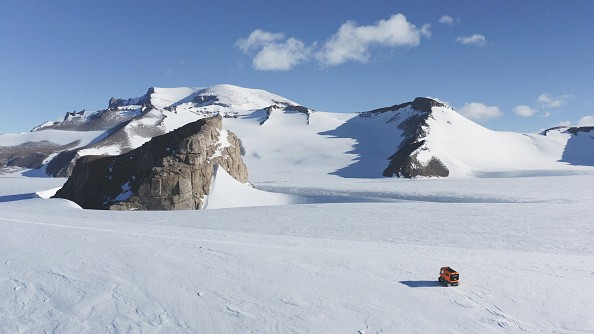Heatwaves at both poles have alarmed climate experts, who have warned that the "unusual" phenomena might indicate a quicker and more catastrophic climate collapse.
Temperatures in Antarctica touched record highs over the weekend, reaching up to 40 degrees Celsius above average in some locations.
At the very same moment, monitoring stations near the North Pole revealed signs of thawing, with temperatures 30 degrees Celsius above average, reaching levels generally seen much later in the year.
At about this time of the year, the Antarctic should be swiftly chilling after its summertime, whereas the Arctic should only be gradually emerging from its winter as the days lengthen.
It is uncommon for both poles to be that hot at the same time.
Temperatures in the past are being recorded

The models have done a fair job of estimating general warming, but we've argued that severe occurrences are surpassing model estimates, according to Michael Mann, director of the Earth System Science Centre at Pennsylvania State University.
Mark Maslin, a lecturer of earth system science at University College London, said that he and his team were surprised by the quantity and frequency of extreme weather events which happened last year, as per The London Economic.
They now have record temperatures in the Arctic, which could be an indication that we have entered a new severe phase of changing climate far sooner than projected, he continued.
Temperatures in the poles are rapidly rising, signaling a disturbance in Earth's climatic processes.
The Intergovernmental Panel on Climate Change cautioned last year in the first chapter of a major assessment of climate science that extraordinary warming signals were already occurring, leading to certain impacts, such as polar melt that might quickly become irreversible, as per The Guardian.
The heatwaves at the poles are a powerful indicator of the damage humans are causing to the climate, and melting might cause more cascade shifts that would hasten climatic breakdown.
Much of Antarctica's ice cover land and thawing raises ocean levels.
Last year's severe code red for the whole world
The study, according to UN Secretary-General Antonio Guterres, is a "code red for mankind."
The alarm bells are loud, and the data is indisputable: emissions of greenhouse gases from fossil fuel combustion and deforestation are suffocating our planet and putting billions of people in danger.
Global warming is affecting every corner of the planet, and many of the consequences are permanent.
The study must spell the end of coal and fossil fuels before they ruin our world.
According to the Associated Press, one weather service in Antarctica broke its all-time record by 15 degrees Celsius, whereas another coastal site prone to hard frost at this point of the year was 7 degrees over freezing.
However, in the Arctic, several areas were 30 degrees Celsius above usual.
Former NASA head researcher James Hansen, who was among the first to alert authorities about global warming more than three decades ago, told that the heating of the poles was "concerning" and that ice cover in the Arctic this year will surpass a ten years mark for its smallest extent.
Related article: Study Shows Drought Worsen Heatwaves, Making the Event Less Deadly
© 2026 NatureWorldNews.com All rights reserved. Do not reproduce without permission.





